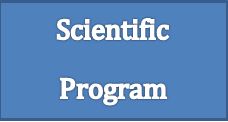Zhao Qu
Guangzhou University of Chinese Medicine, China
Title: Anti-neuroinflammatory mechanism of 7-methoxyflavanone in lipopolysaccharidestimulated BV2 microglia cells
Biography
Biography: Zhao Qu
Abstract
Microglia plays an important role in the neurodegenerative diseases in the central nervous system. Over activated microglia also leads to the production of excessive inflammatory molecules and deleterious consequences, including neuronal death. 7-methoxyflavanone (MF), one of the nature flavone extracted in Ixeridium gracile, has been shown to inhibit the cytochrome P450 aromatase and the MAO-B. However, its function and the underlying mechanisms in neuroinflammation responses in microglia remain poorly understood. In this study, we investigated MF inhibited expression of COX-2 and inflammation mediators ICAM-1 and MCP-1 in Lipopolysaccharide (LPS)-stimulated BV-2 microglia. MF also reduced the production of pro-inflammatory cytokines (TNF-α and IL-6) induced by LPS. Furthermore, investigation of the molecular mechanism indicated that MF inhibited the phosphorylation of ERK and JNK at a lower concentration than that for p38 MAPK. Further experiments revealed that MF treatment considerably increased the activation of Nrf2 and the expression of its target genes, including HO-1 and NQO1. MF also induced phosphorylation of AMPK/LKB in microglia. Interestingly, we found that MF inhibits TLR4/MyD88 signaling by interfering with LPS and TLR4 interactions. Therefore, MF might be useful as a therapeutic agent for the treatment of neuroinflammation-associated disorders such as Alzheimer's disease and Parkinson's disease.

